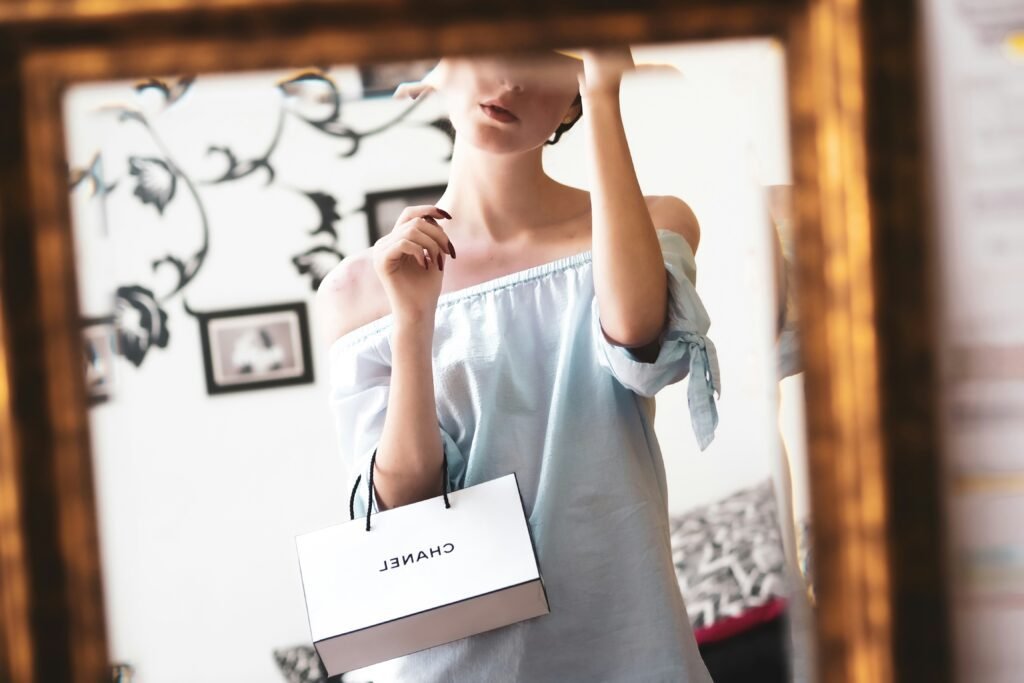Luxury has always been a symbol of status, success, and exclusivity. But what drives people to spend thousands on designer handbags, luxury cars, and high-end watches when more affordable alternatives exist? The answer lies in psychology. Our desire for luxury products is deeply rooted in human nature, societal influence, and emotional gratification. This article explores the psychological factors behind luxury consumption and why high-end products remain irresistible.
Thank you for reading this post, don't forget to subscribe!1. The Status Symbol Effect
One of the primary reasons people gravitate toward luxury items is the status symbol effect. Possessing high-end products signals wealth, success, and social status. Psychologists call this conspicuous consumption—spending on luxury goods to showcase financial power and elevate one’s position in society. Research in Psychological Science found that individuals who wear luxury brands are often perceived as more competent and high-status than those who don’t.
Why This Works:
- Humans are wired to seek social validation.
- Luxury items create a sense of exclusivity and prestige.
- Expensive purchases act as a form of self-expression.
2. Emotional Gratification & Dopamine Release
Luxury shopping is not just about looking rich—it’s about feeling good. Buying high-end products triggers a dopamine release in the brain, leading to a feeling of pleasure and excitement. This phenomenon, known as retail therapy, explains why people experience joy when purchasing luxury goods.
Why This Works:
- The anticipation of owning a luxury item increases dopamine levels.
- Luxury purchases create a sense of personal reward and accomplishment.
- The unboxing experience and brand presentation heighten emotional satisfaction.
3. The Scarcity Principle
Luxury brands intentionally limit production to create artificial scarcity. This principle, backed by research in behavioral economics, states that people perceive rare and exclusive items as more valuable. Limited-edition releases, waiting lists, and high price tags make luxury items even more desirable.
Why This Works:
- Scarcity increases perceived value and demand.
- People fear missing out (FOMO) on exclusive products.
- Owning a rare luxury item enhances social distinction.
4. The Halo Effect: Associating Luxury with Quality
Consumers often believe that higher price = better quality. This cognitive bias, known as the halo effect, leads people to assume that expensive luxury brands offer superior craftsmanship, durability, and innovation. In reality, while many luxury products are high-quality, branding plays a major role in shaping these perceptions.
Why This Works:
- Luxury brands use premium materials and superior craftsmanship.
- The brand reputation enhances perceived product excellence.
- Psychological association with success and elite lifestyles.
5. Social Proof & Influencer Culture
In today’s digital age, influencers, celebrities, and social media have amplified the luxury market. Seeing high-status individuals endorsing luxury brands increases their desirability through social proof—the psychological tendency to follow what others are doing.
Why This Works:
- People trust and aspire to celebrity-endorsed brands.
- Social media showcases luxury as a lifestyle goal.
- Followers associate luxury products with success and happiness.
6. The Investment Mindset: Luxury as an Asset
Unlike fast fashion or mass-produced items, many luxury goods appreciate in value over time. Designer handbags, limited-edition sneakers, and luxury watches often become collectible assets. This investment mindset makes luxury purchases feel more justifiable.
Why This Works:
- People perceive luxury products as long-term assets.
- Luxury resale markets offer profitable opportunities.
- Owning timeless luxury pieces is seen as a form of financial wisdom.
7. The Self-Identity & Psychological Ownership
Luxury items often serve as extensions of self-identity. Owning a luxury car, wearing a Rolex, or carrying a Chanel bag reflects personal tastes, values, and aspirations. This psychological ownership creates an emotional connection between the consumer and the brand.
Why This Works:
- Luxury products reflect individual personality and achievements.
- Brand loyalty builds strong emotional connections.
- High-end items enhance self-confidence and self-worth.
FAQs About Luxury Psychology
Q1: Is luxury consumption driven by insecurity?
Not always. While some people buy luxury goods for social validation, others do it for personal enjoyment, quality, and investment purposes.
Q2: Do luxury brands intentionally create demand through scarcity?
Yes, many luxury brands limit supply to maintain exclusivity and perceived value.
Q3: Are luxury items actually better quality?
Often, but not always. Some luxury brands prioritize craftsmanship, while others rely more on branding and marketing.
Q4: Why do people save for years to buy luxury products?
Luxury purchases offer emotional gratification, social prestige, and sometimes even financial returns, making them desirable long-term goals.
Final Thoughts
Luxury is more than just expensive products—it’s a psychological experience. From status signaling and emotional satisfaction to scarcity and self-identity, our craving for high-end goods is deeply embedded in human behavior. Whether you indulge in luxury for pleasure, prestige, or investment, understanding the psychology behind it can help make more conscious purchasing decisions.

